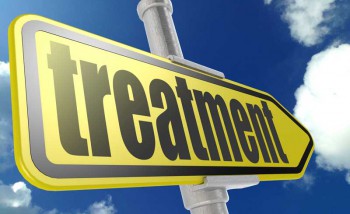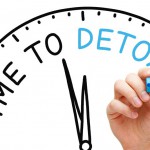Valium Treatment and Diazepam Rehab

Treatment for Valium addiction may include a variety of options depending on the severity of the addiction, past patient history and the reason the patient is being prescribed the medication to start. Valium is a strong, controlled substance, that carries with it higher risk factors for addiction. While Valium, known as diazepam, can be a helpful tool in treatment for mental illnesses like generalized anxiety disorder and panic disorders, it should also be used with caution because of the potential it has for causing drug addiction and drug abuse. Keep reading to find out more about the Valium treatment options and information on drug rehab.
What is Valium? And How Does Valium Addiction Occur?
As mentioned above, Valium is typically prescribed to help treat patients struggling with disorders like anxiety, however it is sometimes used as a coping tool for those going through alcohol withdrawal, insomnia and prior to some surgical procedures. Diazepam works to inhibit the neurons in the brain that control stress and anxiety. By reducing the activity of these neurons, the body and brain can operate more smoothly under less stress. However, Valium can quickly cause both the brain and the body to build a tolerance to the medication. This is when addiction can become possible. Fortunately for those who might be struggling, there are treatment options available.
Valium addiction treatment by medical professionals often includes gathering information so the doctors can take an educated view of the severity of the addiction as well as the possibility for severity and struggles in treatment. They can do this by ascertaining certain information about the patient. Some of these characteristics for addictive personalities include:
Previous addiction, especially polysubstance use or single significant substances like tobacco or cocaine.
There are higher risks for addiction with those who are of a younger age or have a history of childhood sexual abuse.
Legal troubles, especially if the person has faced charges for drug possession, driving under the influence or having stolen controlled substances
Not all of these characteristics means the patient might develop a Valium or benzo addiction, but it increases the chances according to information found in medical journals reporting on decades worth of findings from various benzo addiction cases. With these risk factors at play, doctors may need to exercise even greater caution when prescribing controlled medications like Valium and especially need to take heed of these histories if their patient begins showing signs of a benzo addiction and needs Valium treatment for addiction.
Valium Treatment Options:
As part of the treatment options available for those struggling with a prescription drug addiction, there is the Prescription Drug Monitoring Program available in select states throughout America that is an electronic database that collects information on medications that are most widely distributed in that state. This helps promote the appropriate usage of that medication to help keep controlled medications available for legitimate medical purposes while simultaneously attempting to cut down on abuse and diversion, according to new medical journal information by the National Library of Medicine.
As part of the treatment options for Valium addiction, the doctor or medical professional in charge of supervising the patient’s wean and detox process, close supervision will include close PMDP monitoring. Through this, the patient’s medication is counted at each visit. The patient is seen weekly (or on a schedule best determined by the doctor) to evaluate the medication usage compliance.
Other therapies and possible medication switches are also part of the treatment process. Doctors may use selective serotonin reuptake inhibitor medications as a more long-term solution to anxiety problems in the patient. In addition, therapy to treat the cause and root of the anxiety disorder is often addressed. Through these additional treatment options, the reduction in benzos taken by the patient can increase.
Valium Rehab Options:
Unfortunately, sometimes close monitoring by a medical professional and simple weaning and detox from Valium is not enough for someone who might be struggling with a severe Valium addiction. In these cases, there are rehab options available. There are two types of rehab including inpatient and outpatient. With the help of a medical professional, you can determine which option might be best for you.
Inpatient drug treatment is more time intensive and requires more of a lifestyle commitment, days begin with therapy and continue with rehab activities, group support meetings and additional therapies and medications throughout the day. For those with a near-fatal addiction, this type of intensive rehab might be the best option.
Outpatient can still be worthwhile but less intense. For others, inpatient rehab for Valium addiction requires too much time and money. However, outpatient rehab options can be a great way for the patient to get the intensive care they need on a more flexible basis. This is great for those who may still need to work and cannot afford to take 30-90 plus days off to attend inpatient rehab.
There are many drug rehab options available depending on the need, problem to be solved and path you might like to take to begin your journey toward recovery. If you or someone you know is struggling with a Valium addiction, talk to your doctor now to see what steps you need to take to explore the best Valium addiction treatment and rehab options available and get the help you need.
Sources: medicalnewstoday.com
https://www.ncbi.nlm.nih.gov
Drugs.com
Recovery.org






